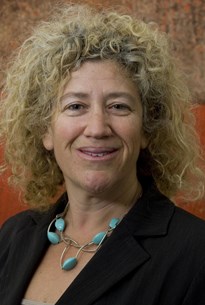Meeting
2022 ASCO Annual Meeting

Monash Health, Melbourne, Australia
Eva Segelov , Amy Body , Vi Thi Thao Luong , Veronica Aedo Lopez , Luxi Lal , Hesham Abdulla , Stuart Turville , Zin Naing , Stephen Opat , Robert McCuaig , Sudha Rao , Katie Lineburg , Corey Smith , Chandini MacIntyre , Elizabeth Stephanie Ahern
Background: COVID-19 infection has poor outcomes for patients (pts) with cancer. Understanding vaccine response as a correlate of protection from severe infection is essential to advise pts regarding protective behaviours and optimal vaccine schedule. This Australian cohort is unique due to low rates of COVID-19 exposure at study entry (July-November 2021). and use of a 3 dose schedule. Pts initially received 2 doses of either BNT162b2 (Pf) at a 3 week interval, or ChadOx1-S (AZ) at a 6 week interval, all then received a 3rd dose, either mRNA-1273 (Mod) or Pf after 2-4 months, and finally a 4th dose at an interval of a further 3 months, for a subset. Methods: SerOzNET (ACTRN12621001004853) has enrolled pts with solid and haematological (haem) cancers prior to initial vaccination. Serial blood samples were processed for serum, PBMC and PMN at timepoints: 0, then 3-4 weeks post dose 1 then 2 then 3 then 4 (where administered). We report here neutralizing antibodies (nAb) against wild type (wt) and delta and omicron variants of concern (VOC); quantitative S-protein IgG antibody (Abbott); T-cell correlates measured by levels of interferon-g (IFN g), tumour necrosis factor-a, interleukins (IL-) 2/4/5/13; and epigenetic profiling of T cells. Results: The cohort consists of 401 pts with median age 58 (range 18-85); 59% female; 128 (32%) haem cancers. 377 (94%) are on current or recent (< 12 months) systemic therapy: 162 (43%) chemotherapy, 62 (16%) immunotherapy, 40 (10%) combined chemo/immunotherapy, 113 (29%) hormonal or targeted therapy. 42 (10%) received anti-CD20 therapy < 12 months, 6 (1.4%) had allogeneic stem cell transplant. NAb levels against wt are available for 256 pts post dose 1, 245 pts post dose 2 and 159 pts post dose 3 (will be updated). Response rates post dose were respectively 27%, 77% and 88%. Pts with haem cancer were less likely to respond to vaccination at any time compared to pts with solid cancer (p < 0.001, chi-squared test). After 3 doses, 3.8% of pts with solid cancer and 27.8% with haem cancer lacked NAb. NAb results to VOC delta are available for 92 pts post dose 2: 25/92 (27%) were negative, compared with a non-response rate to wt of 15% at same time in same pts. IFN-γ-Spike response was detectable in 18/31 (58%) and 24/30 (80%) pts post dose 1 and 2 respectively. 101 pts to date have received a 4th dose; data will be available at the meeting, as will epigenetic profiles and detailed clinicopathological correlations. Conclusions: This interim analysis shows that a significant proportion of pts with haem cancers (27.8%) lack protective Sars-CoV-2 antibodies following 3 vaccinations, whereas only 3.8% of solid cancer pts lack detectable response. Results from other B and T cell parameters may also be important in identifying pts less well protected by vaccination. Follow up is ongoing, response rate post 4th dose will be presented at the meeting. Clinical trial information: ACTRN12621001004853.
Disclaimer
This material on this page is ©2024 American Society of Clinical Oncology, all rights reserved. Licensing available upon request. For more information, please contact licensing@asco.org
2022 ASCO Annual Meeting
Poster Session
Symptoms and Survivorship
Symptom Science and Palliative Care
Health Promotion/Behaviors
ACTRN12621001004853
J Clin Oncol 40, 2022 (suppl 17; abstr LBA12065)
10.1200/JCO.2022.40.17_suppl.LBA12065
LBA12065
311
Abstract Disclosures
2022 ASCO Annual Meeting
First Author: Urska Janzic
2023 ASCO Breakthrough
First Author: Chayanee Samdaengpan
2023 ASCO Annual Meeting
First Author: Oliver Overheu
2023 ASCO Annual Meeting
First Author: Yuki Katsuya